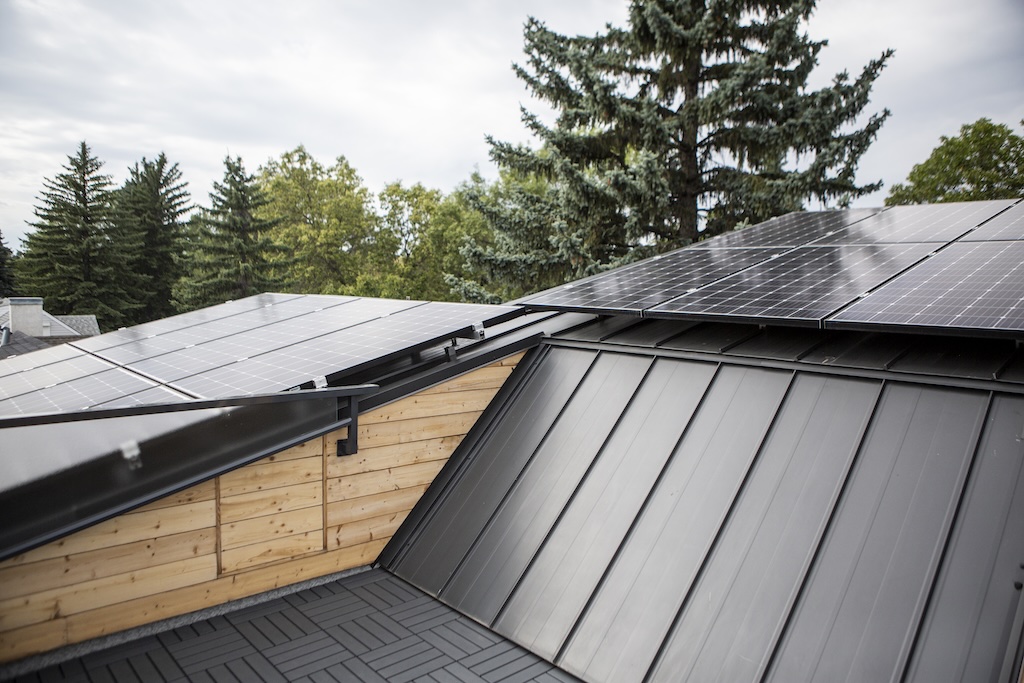Community Efficiency Financing (CEF)
GMF's Community Efficiency Financing (CEF) initiative has emerged as a highly valued source of experience and expertise, empowering municipalities to create long-term, locally tailored programs that help homeowners plan, afford, and undertake home energy upgrades.
Using models like Property Assessed Clean Energy (PACE), utility on-bill financing and third-party lending partnerships, the initiative helps finance the up-front cost of local projects that reduce energy bills and greenhouse gas emissions, improve resilience to local climate impacts, create jobs and make homes healthier and more comfortable for occupants. Through CEF, essential financing mechanisms like PACE (Property Assessed Clean Energy) have added value for homeowners, delivered on municipal sustainability goals and provided an attractive investment opportunity for private lenders.
The initiative's approach to building community and strong pan-Canadian networks has been instrumental to its success.
Overview
In a standout year for project interest, GMF increased CEF's annual funding allocation from $50.5 million to $67 million to meet growing demand for energy-efficiency upgrade retrofit financing.
At the four-year point in the five-year initiative, CEF has unlocked the market transformation potential of PACE, by supporting municipalities to establish more than 40 local programs across Canada—a significant scale-up for an approach that had only a small number of similar programs prior to CEF's launch in 2020. Uptake has been swift, reflecting the pent-up demand that CEF was able to meet. CEF funding was always intended to create enduring programs that could scale, and among the programs that have fully placed their initial loans from GMF, some are now amplifying the benefit using their own capital, or through private sector financing. GMF has secured over $70 million in private capital leverage (for every $1 dollar approved, the program has leveraged $0.25 of dollars in private capital).
CEF funding prioritizes projects that maximize community impact and innovation while ensuring balanced access across Canada. Funding criteria place highest priority on projects that are innovative, or meet priority design criteria such as deeper energy retrofits, aim for higher greenhouse gas emissions, assist lower-income homeowners, and emphasize new approaches to local capacity-building, stakeholder engagement or project management. Of greatest immediate importance to occupants, CEF programs also deliver energy cost savings and superior home comfort while providing new ways to afford the high up-front investments that prevent many Canadian households from taking advantage of energy retrofits.
To build capacity, CEF's second learning forum brought together staff from 55 municipalities and partner organizations during GMF's Sustainable Communities Conference in Fredericton. The forum was designed for participants who were actively engaged in developing or implementing residential energy efficiency financing programs, enabling them to meet in person and exchange best practices and strategies after interacting through CEF's online community of practice.
In addition, CEF launched a six-month PACE Scale-Up Support Pilot to help jurisdictions plan for long-term program continuity. The cohort-based learning series explored capital sourcing, operational efficiency, and business case development.
New resources included a PACE jurisdictional scan, case studies and an equity guide to help program administrators embed equity considerations into their programs.
Key results
- 13,250 tonnes of CO2e/year in anticipated greenhouse gas emissions avoided
- $68.1 million in funding allocated, including $41.3 million in loans and $26.8 million in grants
- Helped households save an average of $1,383.49 per year in energy costs (based on all completed projects)
- Supported 3,012 direct and indirect jobs
- Contributed $293,811,861 to the national GDP (directly and indirectly)
Photo courtesy of Alberta Municipalities



